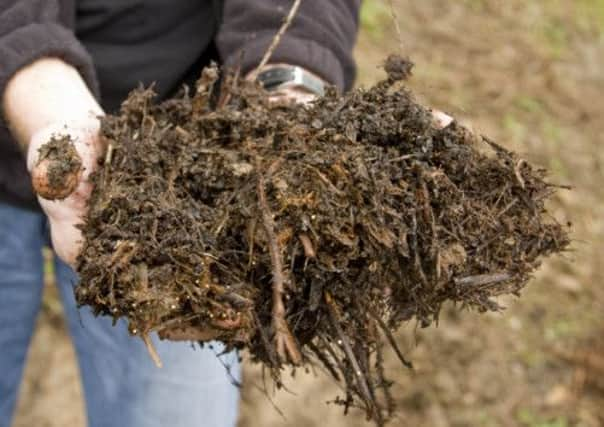Legionella bacteria in majority of UK composts


The research by Strathclyde University – said to be the first substantial analysis of Legionella in UK composts – found the bacteria in more than half of the different brands tested.
The research comes after six cases of Legionella longbeachae linked to compost were reported in patients in Lothian and Tayside in recent weeks.
Advertisement
Hide AdAdvertisement
Hide AdThe researchers, writing in the journal Clinical Microbiology and Infection, said they found the presence of Legionella bacteria in a “significant number” of commercial compost products.
They examined 22 brands available to buy in the UK and some 14 contained a variety of Legionella species. Some of the species found are known to have caused disease in humans.
The results suggest that the bacteria are a common part of the “microflora” found within the composts tested, the researchers said.
Dr Tara Beattie, from Strathclyde’s department of civil and environmental engineering, said: “Disease-causing micro-organisms are widespread in the environment, and therefore it is not too surprising that species of Legionella that can cause human disease are present in compost. We already know compost has been linked to human Legionella infection in countries such as Australia and New Zealand.”
Dr Beattie said a change in the composition of compost in the UK could explain why Legionella bacteria was found in so many brands.
She said: “Within the UK and across Europe, composts have traditionally been composed of peat, whereas sawdust and bark are more often used to produce compost in Australia and New Zealand.
“It may be that the change in composition of composts in the UK, moving away from peat-based products, could be resulting in species such as Legionella longbeachae being present in compost and therefore more cases of infection could occur.”
Dr Beattie said a larger-scale survey was now required to determine if these organisms are as widespread as the initial study would suggest.
Advertisement
Hide AdAdvertisement
Hide AdShe added: “It should be emphasised that although Legionella seem to be common in compost, human infection is very rare, especially if you consider the volume of compost sold and used. But with any potential source of infection, precautions should always be taken.
“The occurrence of these bacteria in composts in Australia and New Zealand, and the cases of infection that have been traced to compost, has resulted in hygiene warnings on compost packaging in these countries, and this is something manufacturers in the UK may wish to consider.”
Martin Donaghy, from Health Protection Scotland, said: “The risk of becoming unwell from gardening activities such as working with compost remains very low. However, we would recommend good hygiene in relation to gardening such as wearing gloves, wearing a mask if dusty and washing hands immediately after use. Store compost, potting mixes, mulches and soil in a cool place.”
A spokeswoman for the Growing Media Association, the trade body representing the compost industry, said: “The GMA would concur with the observation that bacterial micro-organisms are widespread in the environment and therefore their presence in compost is unsurprising.
“However, the GMA has conducted a thorough global assessment of the risks, and shares the conclusion that these can be minimised through sensible hygiene good practice.”